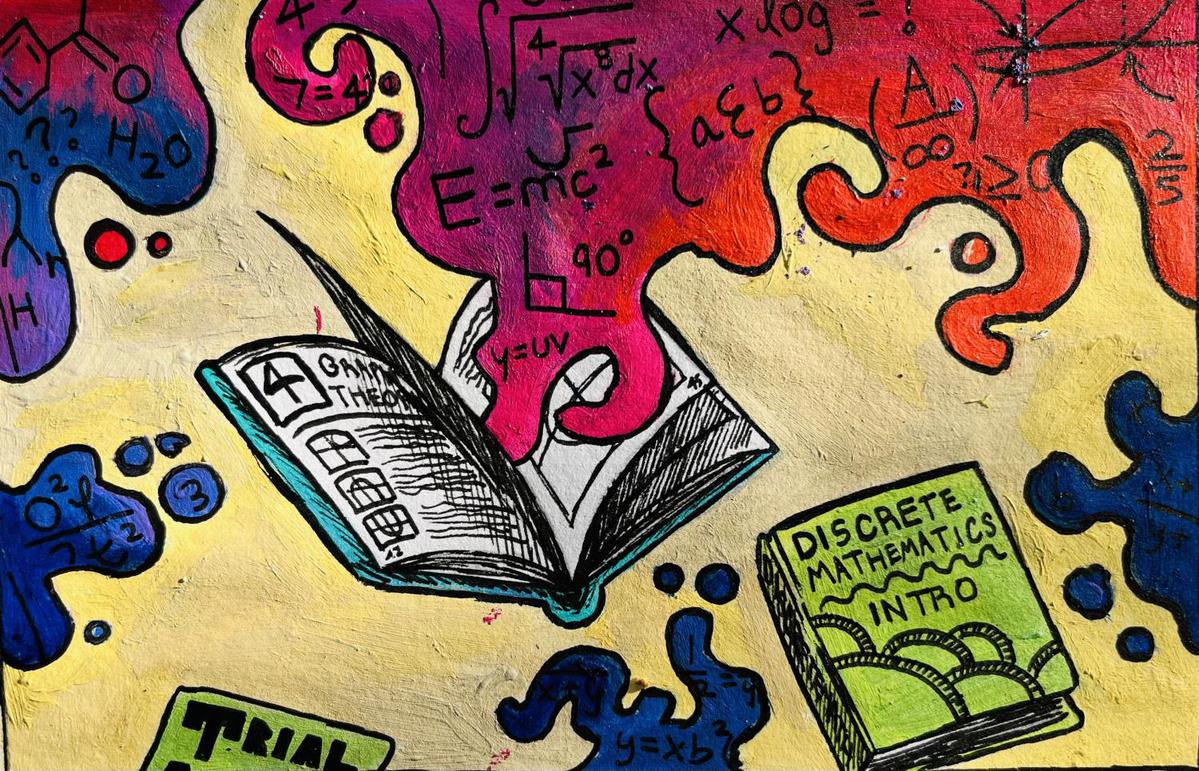In elementary school, I remember declaring that my favorite subject was “anything but math.” By senior year of high school, I was determined to never take a math class again, but that didn’t work out. As a Plan II major, I was required to take a theoretical math course in the spring semester of my first year. Plan II math has taught me that there’s no such thing as “anything but math” because math is everywhere, which, surprisingly, I learned to find exciting.
The unique coursework in this class allowed me to explore challenging content I might have otherwise avoided. While a fear of failure can prevent students from developing resilience in problem-solving, theoretical mathematics offer a unique vantage point for challenges that we might face. Coursework in this subject improves cognitive skills for students to solve these problems logically, efficiently and creatively.
For example, Plan II math (Math 310P) was formulated differently from a traditional math class. While college algebra might teach students how to use specific equations and functions, in Math 310P, “The goal of the class is to teach thinking,” said Michael Starbird, co-founder and professor of the course.
“Mathematics is a wonderful vehicle for teaching thinking because it has properties of clear reasoning, following logical consequences, saying what you mean and meaning what you say.”
This type of course can be categorized in a few ways; some might call it “contemporary math,” “quantitative reasoning” or “theoretical math,” and ultimately it seeks to show students the broad applications and creative art of mathematics. Students can pursue the benefits of contemporary math through coursework regardless of their field of study. Outside of the classroom, we should also consider the exciting opportunity to study mathematics (yes, for fun) online and in personal reading.
Contemporary mathematics offers a new way of thinking that is valuable to everyone, from poets to astrophysicists. Part of this unique curriculum is critical thinking, which allows students to replace an impulsive action with systematic reasoning.
While studying theoretical math, I noticed a tangible improvement in my problem-solving confidence and abilities. I wasn’t just learning how to solve math equations, but how to solve problems in other classes and everyday life.
Michael Starbird co-wrote “The Heart of Mathematics: An invitation to effective thinking” to welcome more students to this mode of thinking.
“The mathematics was intended to be a vehicle for teaching students how to think better, no matter what they do,” Starbird said. “I tell my students, ‘if you are going to be an author, journalist, painter or politician, whatever it is you intend to be, this is for you.’”
Sophomore Ren Watson recognized the ability for contemporary mathematics to bridge disciplines when she decided to pair a philosophy degree with a math major.
“I’m interested in the intersection between hard mathematical thinking and philosophical math thinking,” Watson said. “(Theoretical math courses) are a less computationally intense way of thinking about math that is still very logical.”
In providing students with a holistic education, mathematical philosophy should be included as a powerful tool for bridging disciplines. This can be accomplished by students seeking out relevant coursework while UT offers and highlights the value of critical thinking and problem solving.
Theoretical math has the potential to empower people to solve complex issues with logical reasoning. No matter their degree plan, whether STEM or humanities, students should take advantage of this opportunity to broaden their perspectives, inside the classroom and far beyond it.
Jackson is a Plan II and journalism sophomore from Boerne, Texas.














